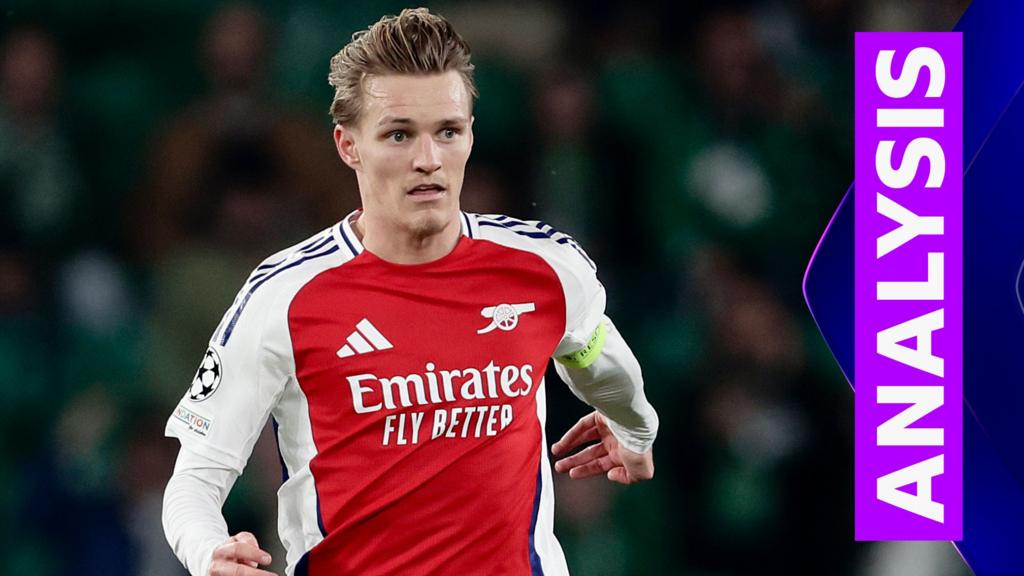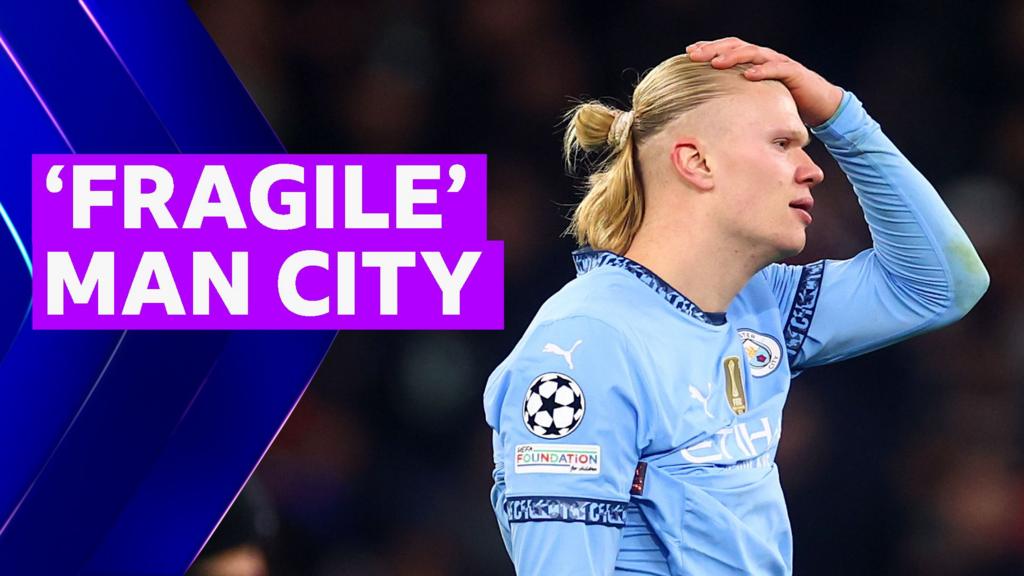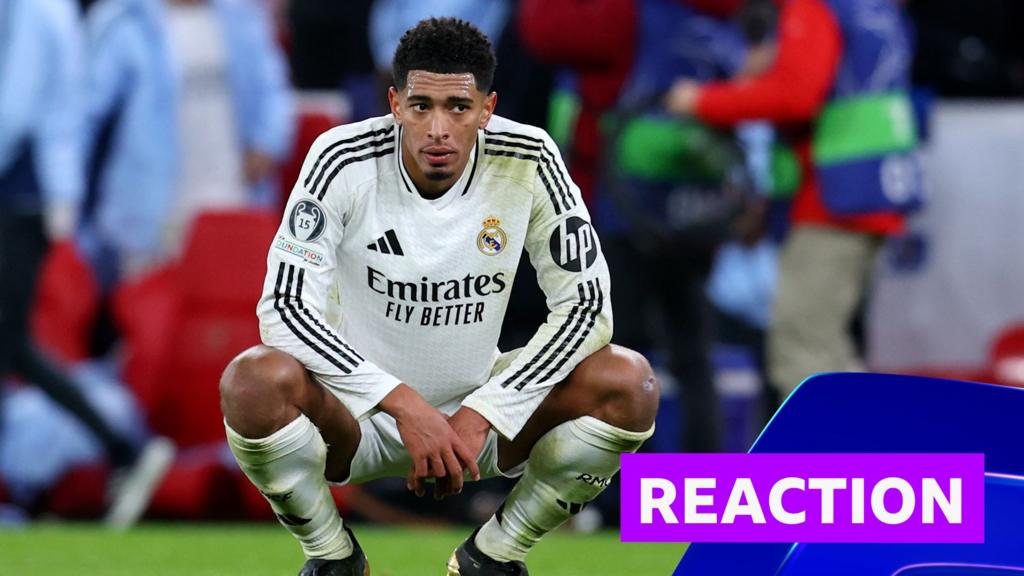ARTICLE AD BOX
Meet the group investing in women's football
Sarah Dawkins
BBC Sport Senior Journalist
Katie Gornall
BBC Sport Correspondent
In a corner of northern Italy, perched on a sun-kissed lake, lies the town of Como. Renowned as a playground for the rich and famous, it’s a location that has long attracted investors.
And now they are here for women’s football.
Six months ago, a new investment group called Mercury/13 bought FC Como Women, a mid-table team in Serie A Femminile.
The group, co-founded by Victoire Cogevina Reynal, have pledged to invest more than £80m buying and transforming women’s clubs around the world. They describe investing in England as an "absolute priority".
"You will normally see a women's club within a male club, and most likely it will be in its shadow," Cogenvina Reynal, an American-born London-based entrepreneur and United Nations ambassador for Gender Equality in Football, tells BBC Sport.
"A lot of magic happens when the women's team becomes a priority. We're not doing other sports. We're not doing men's football. We have a 24/7 focus on women’s football."
Image source, Mercury/13
Image caption,FC Como Women are marketed like a luxury fashion brand on social media
Their aim, she says, is to "rip up the blueprint" when it comes to football club ownership and unlock their team’s commercial potential.
"It's good business because it invites the other half of the world that has, in a way, been ignored in this industry," says Cogevina Reynal. "And we women are powerful consumers when we get behind something."
Como ticked all the boxes for their first investment, with the location and the ability to commercialise the setup a big draw.
Since the takeover the club has been given a whole new image, and is presented on social media more like a luxury brand.
"We are running this club almost like a tech start-up," says chief executive Elena Mirandola.
Image source, Mercury/13
Image caption,Victoire Cogevina Reynal says Mercury/13 intends to invest in England's Women's Super League
Walking around the club’s upgraded training ground, Mirandola tells BBC Sport her pitch to sponsors centres on inclusion and gender equality, rather than just sport.
"This is not a charity it is a business, so we have to make it work," she says.
"We are a football club, but at the same time, we are building a platform which goes way beyond just football."
FC Como’s raft of new players have bought into the vision.
"I came because of the project," says Slovenian midfielder Dominika Conc. "It is a women's only team.
"When you have men's team it is a safety net sometimes, but at the same time, you're not a priority.
"It's nice to be somewhere where you don't need to constantly fight for certain things."
It hasn’t all been plain sailing for Mercury/13.
Last November, the group was in discussions to buy Lewes FC, then playing in the Women’s Championship, but a deal couldn’t be reached. Despite the setback they say investing in the UK market is their "number one strategic priority".
"We are big fans of the Women's Super League," Cogevina Reynal adds. "We consider it has potential to become the best women's football league in the world. Lewes didn't work out. But we'll be there very soon."
'No higher potential than women's football'
For now, the focus is on FC Como and their first game of the new season against AC Milan.
The team play out of town in Stadio Ferruccio, a ground encircled by a running track that dates back to the 1930s.
From these modest surroundings Mercury/13 hope to build their club into a global brand. They have a message for those who doubt it can be done.
"I would say there's no higher potential than women's football today," says Mario Malave, Mercury/13's co-chief executive.
"If you give women's football dedicated management, dedicated capital, and nurture it, it's going to grow and blossom tremendously and become that sustainable business.
"It's nonsensical to expect it to be that today, if no-one's invested in it over the last 100 years."
One woman who is already convinced of the financial case for women’s football is Michele Kang. The businesswoman owns London City Lionesses, Lyon and Washington Spirit and wants to buy more.
There are similarities between her multi-club model and Mercury/13’s project, but also significant differences.
"We're big fans of Michele Kang. We hope that more Michele Kangs come along the way, and that we're able to partner with them," says Cogevina Reynal.
"There are differences. We have our investors, we are built as a business, we have to generate returns and when you're in that position, you make decisions in a very different way."
Image source, Getty Images
Image caption,Former England international Eni Aluko has joined the investment group
Cogevina Reynal and her co-founder Malave have brought notable figures on board including former England international Eni Aluko.
She was once sporting director at Angel City FC in the National Women’s Soccer League, a club recently sold for a record-breaking $250m (£185m).
In very different surroundings, Mercury/13 hope to create their own version.
"I got to see Angel City's success first hand, and their approach was incredibly commercial," Aluko tells BBC Sport.
"Before a ball was even kicked, they had sold out the stadium. They had huge brands on board, and the approach with Mercury/13 is equally as commercial.
"So, yes, absolutely, that's the aim, to make sure that it's seen as a viable business, and it's also seen as an exciting product on the pitch, off the pitch. It's something that people want to really get behind."
If Aluko and her fellow investors in Mercury/13 achieve their ambition of creating a stable of women’s super clubs it could transform the financial landscape of the women’s game.
"I think that every entrepreneur that wants to build a business takes big risks, but it's what makes it worthwhile," says Cogevina Reynal.

 2 months ago
10
2 months ago
10








 English (US)
English (US)